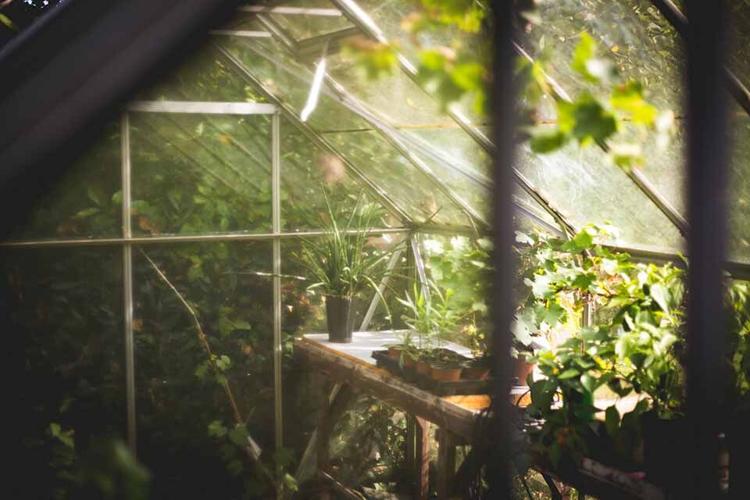
For so many reasons, green gardening is quite a fantastic activity. For instance, you can cultivate greens and other veggies in your backyard, significantly slashing your grocery budget. They also make a valuable addition to your home while improving its aesthetics. This is not to forget the supply of products you can trust as safe, healthy, and free from inorganic fertilizers. Moreover, it also makes a great hobby that you can even commercialize for some extra income.
In either case, a greenhouse provides you with even more benefits. It protects your crops from pests, provides an extended growing season, and protects your plants from weather damage. In a greenhouse, yo0u can easily take care of your crops and manage their growth. If you are planning to buy a greenhouse, here are some things to bear in mind.
1. Size Matters
One of the first things to consider when buying a greenhouse is size. Of course, conservatories come in a wide range of choices to choose from, usually based on your needs and the space you have available. As Gina Harper illustrates, this includes greenhouses you can fit in small yards without much stress. They might not provide the same benefits as larger conventional models, but they make excellent alternatives where space is an issue or you want to get started. If you plan to take up green gardening on a large-scale approach, you will require a bigger model that will accommodate all your gardening purposes. This is especially if you want to grow some commercial produce. The bigger your greenhouse, the more comprehensive the range of choices of plants you can cultivate.
2. Glazing Choices
Greenhouses are not a new thing in our sight, and maybe we are used to a particular style. However, they are available in three main glazing options: transparent, diffused, and opaque. They all offer different functions and serve other purposes. For example, the diffused glazing panel is considered best for growing greenhouse plants to maturity, while the transparent panel is best for starting seedlings that will be transplanted outdoors. The clear panels offer favorable conditions for the seeds to sprout. On the other hand, the opaque panels allow sunlight in (which is vital for plant growth), but you can't see through them. You can choose one of these options depending on what you will be growing and the purpose you want your greenhouse to serve.
3. Design and Insulation
What is your area's kind of weather? If the climate is ice-cold and snow is falling all around, you will do better with an insulated greenhouse. When the insulation is heavy, the warmth is higher and favors the growth of your vegetables. Generally, your location and climatic conditions will dictate the kind of design you will have on your greenhouse. For example, if you are in a hailstorm-prone area, you cannot have a glass greenhouse because the hail will shatter the glass eventually. Similarly, you cannot have a film greenhouse in a room with falling branches and ice; they will tear and damage the material, meaning frequent repairs and replacement.
4. Landscape and Logistics
Before you purchase your greenhouse, consider the size, zoning, and neighborhood. You will want to think about the approximate size and shape of the greenhouse you want and then visualize its impact on your outdoor activities. As much as we are in it for the produce, get something that will make your outdoor look appealing and add some beautiful landscaping features around your space. Refer to your local zoning regulations, so you don't end up bending the rules. Meet all the requirements to avoid attracting legal penalties and trouble.

5. Provider/Company Reputation
Investing in a greenhouse will cost you a significant amount of money. It will be unfortunate for you to get one from the wrong company. First of all, do market research of the company you are to buy from and, if need be, seek recommendations from a trusted source. Go to their website, read the reviews from their clients. From there, you will be halfway into deciding whether to invest with them or close that book. Some basic guidelines include:
- What kind of warranty is provided?
- How long has the company be in existence
- What are the shipping costs
- Will they be offering assistance after purchase?
- Are their products locally available?
Besides getting the right information on the above questions, if their service and reputation are transparent, you can go ahead and grab the chance to get your greenhouse.
Greenhouses are nothing but glamorous. They provide so many benefits, and investing in one should be a serious business. The above tips will help you make an informed decision when planning to buy a greenhouse.




(0) comments
We welcome your comments
Log In
Post a comment as Guest
Keep it Clean. Please avoid obscene, vulgar, lewd, racist or sexually-oriented language.
PLEASE TURN OFF YOUR CAPS LOCK.
Don't Threaten. Threats of harming another person will not be tolerated.
Be Truthful. Don't knowingly lie about anyone or anything.
Be Nice. No racism, sexism or any sort of -ism that is degrading to another person.
Be Proactive. Use the 'Report' link on each comment to let us know of abusive posts.
Share with Us. We'd love to hear eyewitness accounts, the history behind an article.